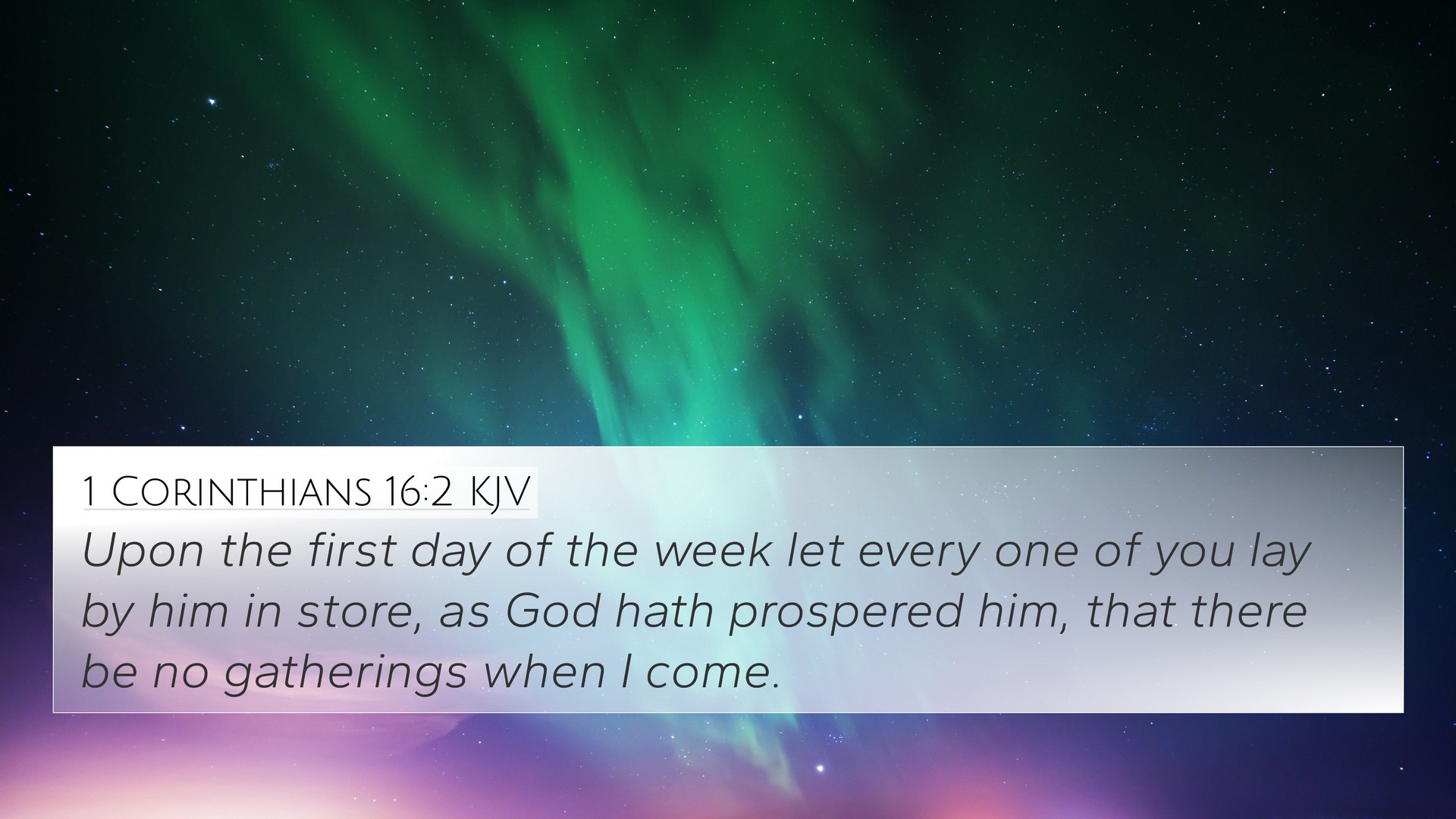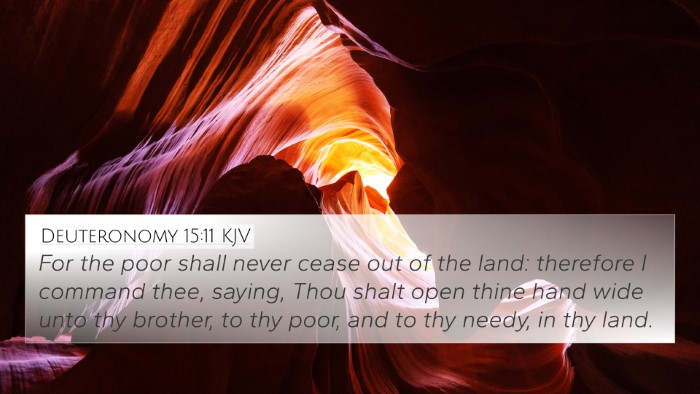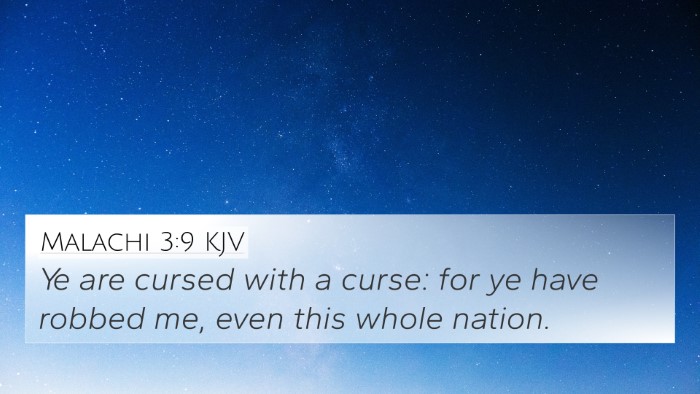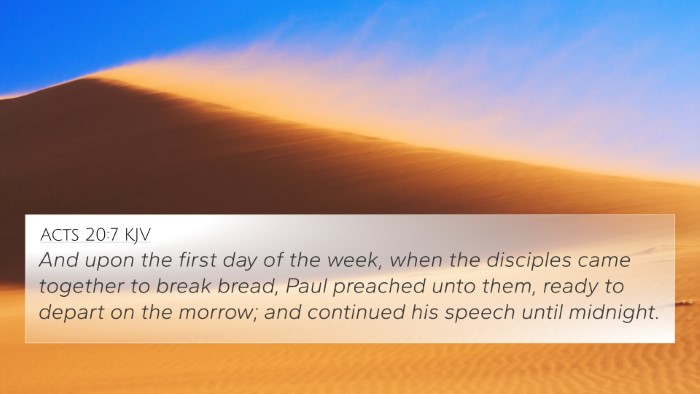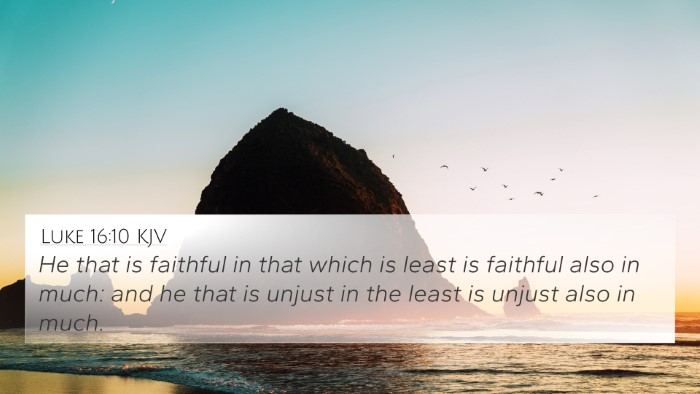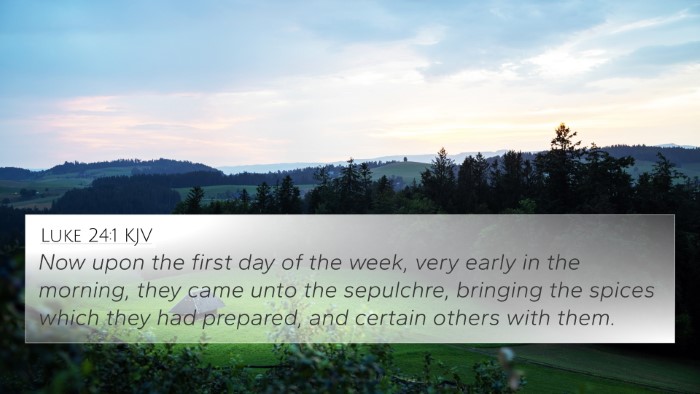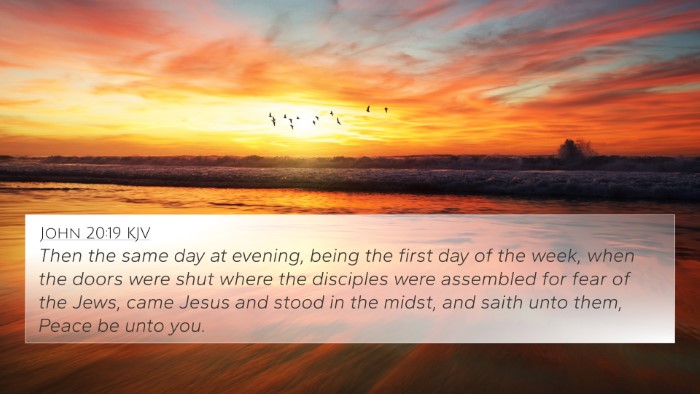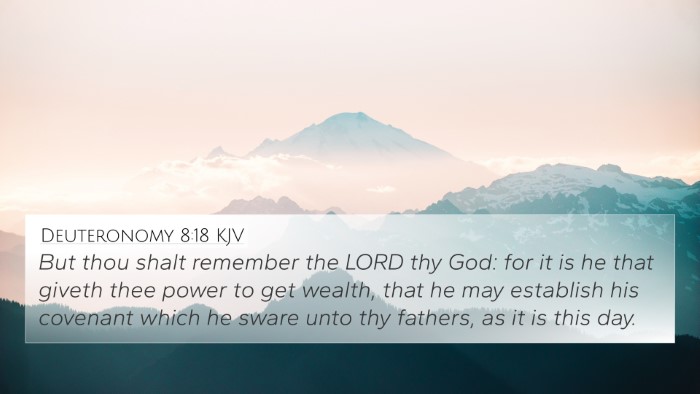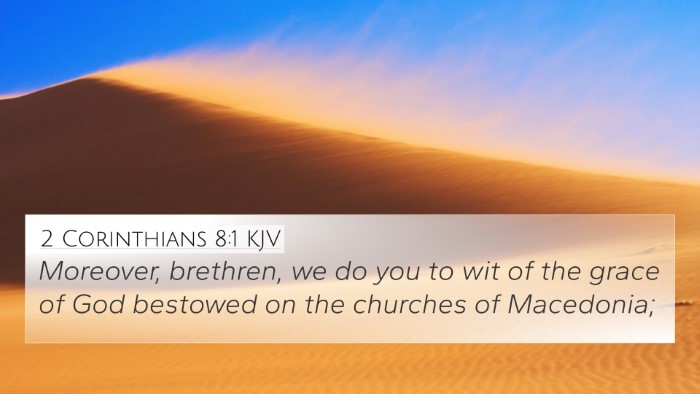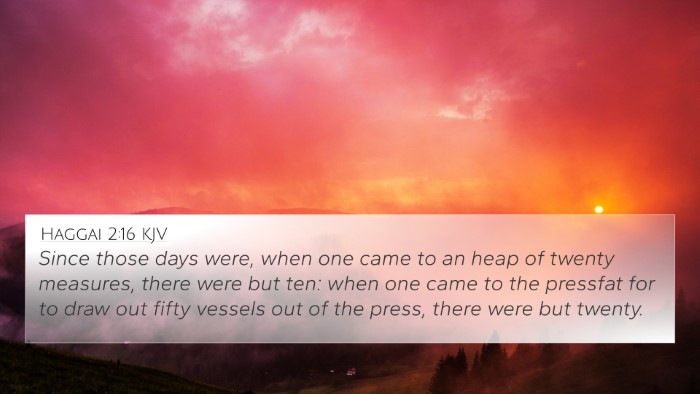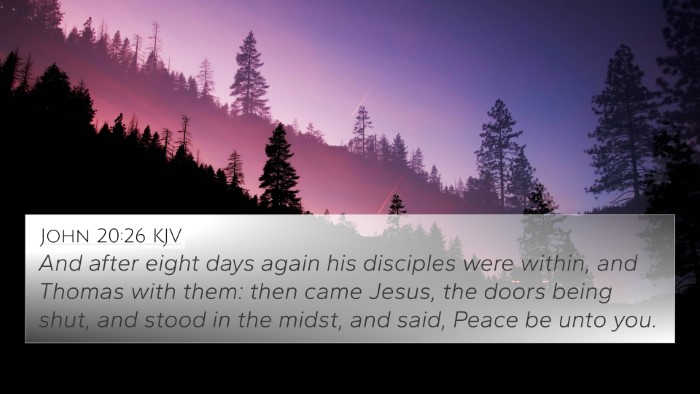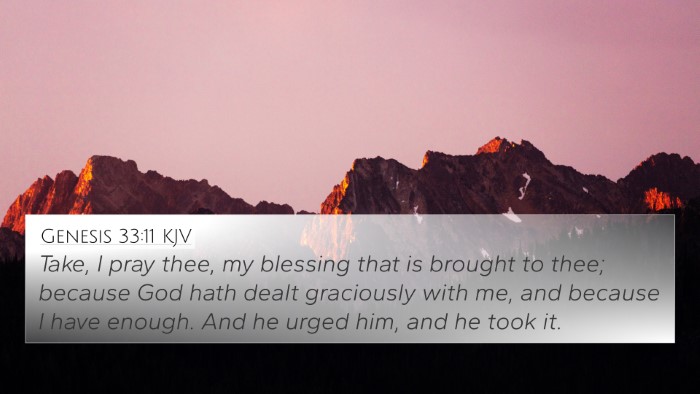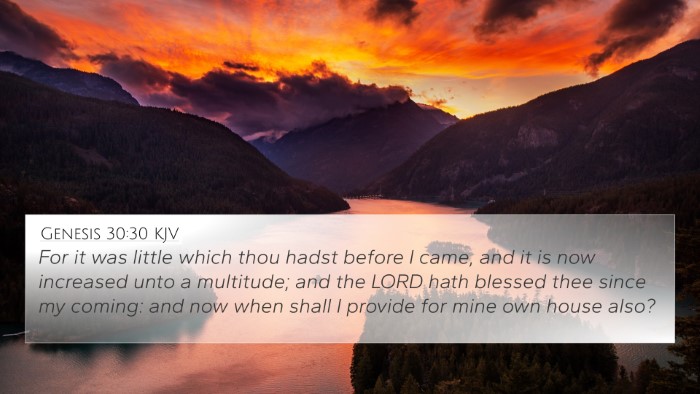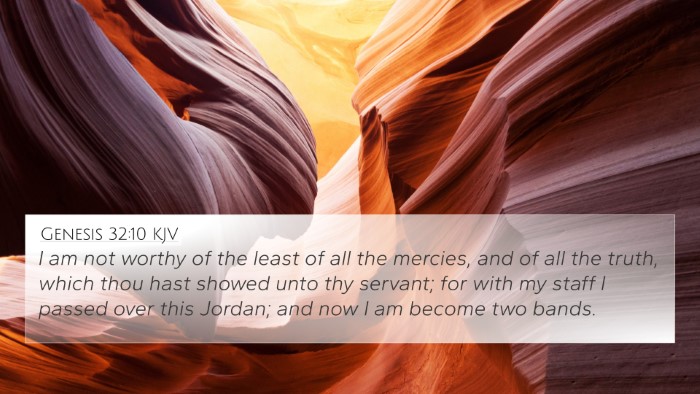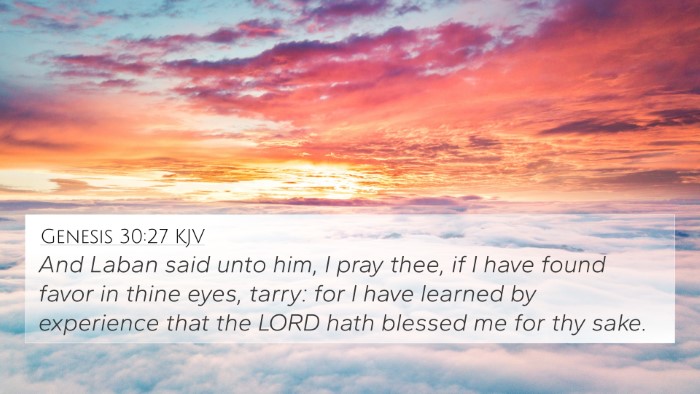Understanding 1 Corinthians 16:2
The verse 1 Corinthians 16:2 states:
"On the first day of the week, each one of you is to put aside and save, as he may prosper, so that no collections be made when I come."
This passage addresses the practice of setting aside a portion of one’s earnings for the support of the church. The Apostle Paul is instructing the Corinthians on how to prepare for future collections for the saints in Jerusalem, emphasizing a systematic approach to giving.
Verse Meaning and Insights
Insights from public domain commentaries provide a deeper understanding of this verse:
- Matthew Henry: Emphasizes the necessity of regular and conscious planning for charitable contributions. He indicates that the act of setting aside money shows a commitment to the welfare of the church community.
- Albert Barnes: Highlights that Paul instructs the believers to give on a weekly basis, aligning their generosity with their income. This systematic giving not only ensures adequate support for the church but fosters a spirit of generosity among believers.
- Adam Clarke: Points out that the phrase “each one of you” suggests inclusivity, encouraging every believer to participate in the act of giving, which reflects their personal relationship with God and their overall responsibility towards the community.
Key Themes in 1 Corinthians 16:2
This verse touches on several important themes in the context of Christian giving:
- Systematic Giving: Regular contributions based on one’s prosperity help believers manage their finances effectively while supporting church operations.
- Community Support: The collection was intended for the impoverished Christians in Jerusalem, highlighting the importance of caring for fellow believers.
- Accountability: By planning ahead, Paul aims to avoid any last-minute pressure for funds, which may lead to unwise decisions regarding giving.
- Worship through Giving: Giving is seen as an act of worship, reflecting gratitude and commitment to God’s work through the church.
Bible Verse Cross-References
1 Corinthians 16:2 connects with various other scriptures, offering an enriched understanding of the themes of giving and community support:
- Malachi 3:10: “Bring the whole tithe into the storehouse, that there may be food in my house.” - highlights the importance of giving for sustaining ministry and community.
- 2 Corinthians 9:7: “Each one must give as he has decided in his heart, not reluctantly or under compulsion, for God loves a cheerful giver.” - emphasizes the heart behind the act of giving.
- Acts 2:44-45: “And all who believed were together and had all things in common. And they were selling their possessions and belongings and distributing the proceeds to all, as any had need.” - illustrates the early church’s commitment to communal support.
- Philippians 4:15-16: Acknowledges the Philippians’ financial support to Paul, showing practical application of his teachings on giving.
- Luke 6:38: “Give, and it will be given to you. Good measure, pressed down, shaken together, running over, will be put into your lap.” - follows the principle of reciprocity in giving.
- Proverbs 11:24-25: “One gives freely, yet grows all the richer; another withholds what he should give, and only suffers want.” - presents wisdom on the benefits of generosity.
- 1 Timothy 6:17-19: Encourages the wealthy to be rich in good works and generous, elaborating on the attitude towards wealth and contributions.
Cross-Referencing Biblical Texts
Thematic connections can be observed when conducting a comparative Bible verse analysis. For instance, cross-referencing Biblical texts such as 2 Corinthians 8:1-5, where Paul discusses the generosity of the Macedonian churches, provides insight into the spirit of giving he encourages among the Corinthians.
Tools and Methods for Bible Cross-Referencing
Engaging in cross-referencing Bible study allows us to find connections between verses that enhance our understanding of scriptural themes. Some tools include:
- Bible Concordance: Helps locate keywords and their occurrences throughout the Bible.
- Bible Cross-Reference Guide: Offers a collection of related verses for deeper study.
- Bible Reference Resources: Provide a larger context and background for verses.
Identifying Connections Between Testaments
Understanding how to find cross-references in the Bible can lead to fruitful insights. One can identify connections between the Old and New Testament by examining themes such as charity, community, and stewardship, reminiscent in verses like Deuteronomy 15:10 and Matthew 25:40.
Conclusion
In summary, 1 Corinthians 16:2 serves as a vital guideline for believers in their practical approach to stewardship and charitable giving. By exploring the assorted commentaries and related scriptures, one gains a comprehensive understanding of the importance of systematic giving within the Christian faith. As believers incorporate these principles, they not only support their local church but also foster a healthy, generous community of faith.
